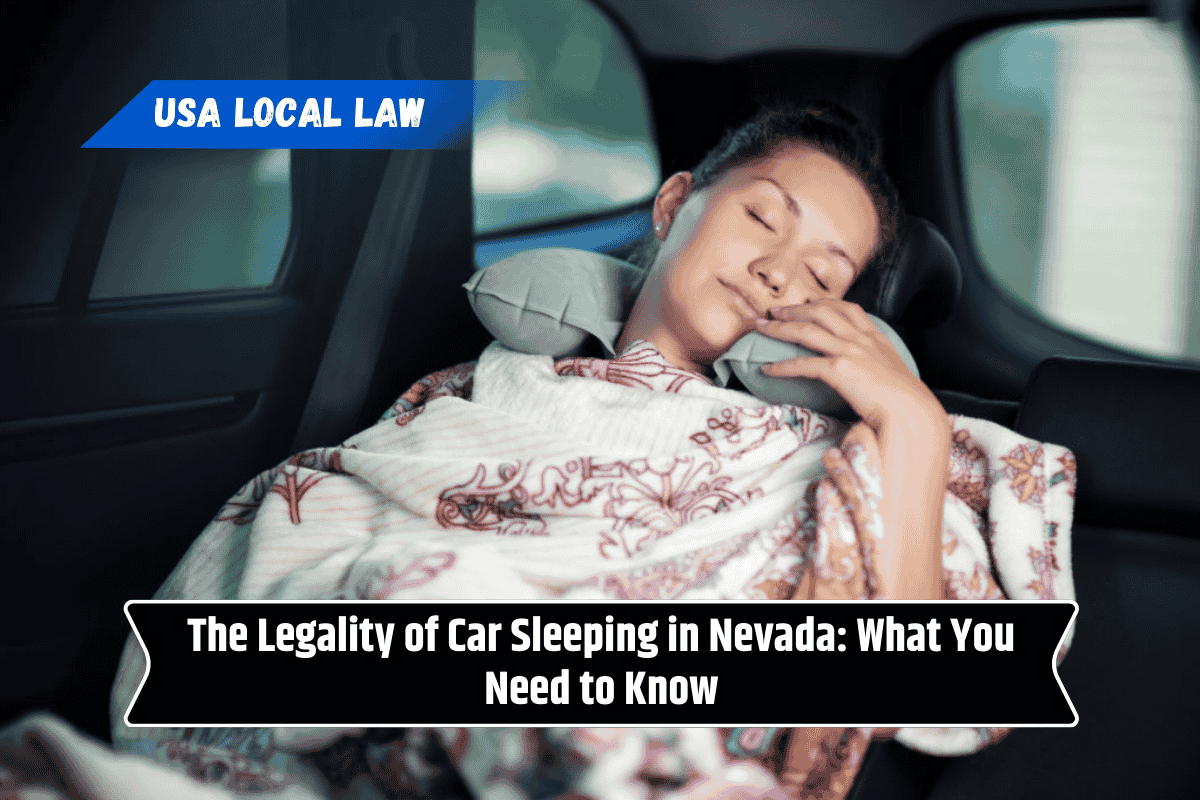Whether you’re a road tripper passing through Nevada or someone seeking a cheap overnight option, sleeping in your car may seem like a simple solution. But is it legal? The answer isn’t as straightforward as yes or no.
Nevada doesn’t have a state-wide law banning sleeping in your car, but there are specific rules depending on the city, county, and location. Here’s a clear and easy guide on what you need to know before you park and doze off in the Silver State.
Is It Legal to Sleep in Your Car in Nevada?
Yes, but with restrictions. There is no statewide law in Nevada that directly prohibits sleeping in your car. However, local laws, parking regulations, and private property rules can make it illegal or risky in certain areas.
Here’s how it breaks down:
Highways and rest areas: Generally allowed, but only for a limited time.
Cities like Las Vegas and Reno: Often have local ordinances that make overnight car sleeping illegal in residential or public areas.
Private property (like parking lots): Requires permission from the property owner.
Where Is It Safe and Legal to Sleep in Your Car in Nevada?
If you want to avoid fines or getting your window knocked on at midnight, stick to these safe options:
1. Designated Rest Areas
Nevada Department of Transportation allows sleeping in rest areas for up to 8 hours.
These are meant for fatigue-related stops, not long-term camping.
2. Truck Stops and Travel Centers
Places like Love’s, TA, or Pilot Flying J often allow overnight stays.
It’s polite to buy something or ask the manager first.
3. Campgrounds and BLM Land
Nevada has a lot of Bureau of Land Management (BLM) land where dispersed camping is allowed.
Make sure to follow “Leave No Trace” rules and check for posted signs.
4. 24-Hour Businesses (with permission)
Some Walmarts or casinos allow overnight parking—but not all.
Always ask store management before settling in.
Where Sleeping in Your Car Is Likely Illegal or Risky
Some places have strict rules about car sleeping. In these areas, you might get fined or asked to leave:
1. Residential Streets
Many cities ban sleeping in vehicles parked on public streets overnight.
Las Vegas has rules that prohibit this in residential zones.
2. School Zones and Parks
Sleeping near schools, parks, or government buildings is usually restricted.
3. Downtown Areas
Most downtown zones in cities like Reno or Henderson don’t allow overnight parking or car sleeping.
Can You Be Ticketed for Sleeping in Your Car in Nevada?
Yes, depending on where you park. Even though sleeping in your car isn’t illegal by itself, you can be cited for:
Trespassing (if on private property without permission)
Loitering
Violating parking time limits
Disturbing the peace or public nuisance
Police officers often use these related charges to ask people to move along.
Tips to Sleep Legally and Safely in Your Car in Nevada
If you’re planning to sleep in your car, here are some useful tips:
Plan your stop: Look up safe and legal places in advance.
Avoid residential neighborhoods.
Don’t block driveways or fire hydrants.
Keep windows cracked slightly for airflow and cover windows for privacy.
Don’t leave trash or make noise—stay low-profile.
Know the local laws in the city or town you’re in.
Is Sleeping in Your Car Considered Homelessness?
In some areas, authorities treat overnight vehicle stays as part of homelessness issues. This is especially true in urban areas where vehicle dwelling is monitored or restricted. Some cities provide safe parking programs, but they are limited in number and often intended for people experiencing homelessness.
Sleeping in your car in Nevada is generally allowed, but only in the right places and under the right conditions. Rest areas, travel stops, and BLM land are your safest bets.
Urban areas like Las Vegas or Reno have tighter rules, and sleeping on city streets or near homes could get you fined. Always check local laws, respect the space, and plan ahead to stay safe and avoid legal trouble.
